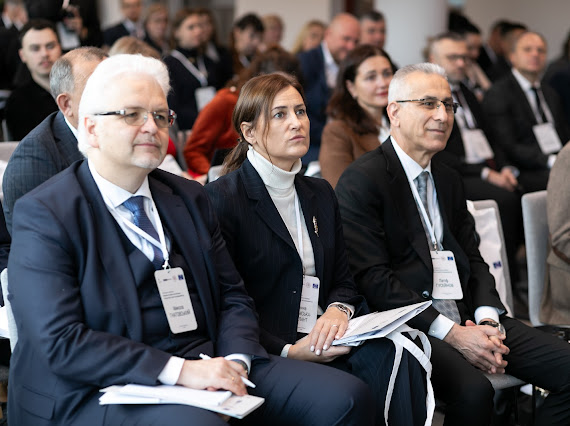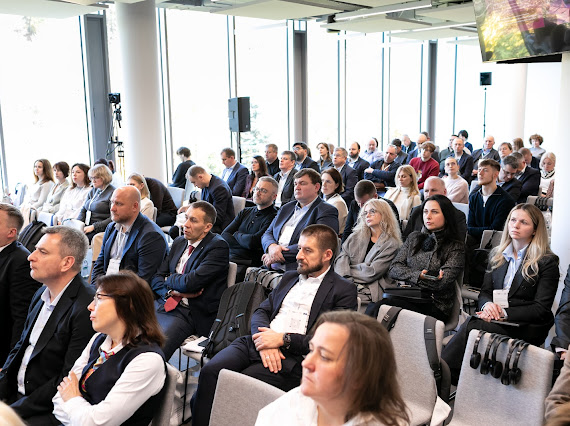
Freedom of speech and the right to a fair trial are not abstract slogans, but interrelated safeguards against the erosion of democratic rule of law. Any actions that create expectations of “quick decisions” in cases that require careful verification of facts and compliance with established procedures risk undermining public confidence in the institutions of justice and the media.
This was the focus of the international conference “The Rule of Law in the Age of Populism: Freedom of Speech and the Right to a Fair Trial,” held on October 24–25 in Lviv.
During the opening of the event, the key direction of the discussion was set by the President of the Supreme Court, Stanislav Kravchenko, the First Vice-Rector of the Ukrainian Catholic University, Yaroslav Prytula, and representatives of the Council of Europe and the OSCE, Giovanni Battista Celiento and Petr Mares. The focus was on ensuring the transparency of justice while guaranteeing the independence of the judiciary from political and informational influence.
Judges of the European Court of Human Rights Mykola Hnatovskyi, Latif Huseynov, and Anna Adamska-Halant, judges of the Constitutional Court of Ukraine and the Supreme Court, heads and editors of leading media outlets, as well as experts from the Council of Europe and the OSCE participated in individual sessions. Members of the High Qualification Commission of Judges of Ukraine, Ihor Kushnir and Oleksiі Omelian, also took part.
The first day of the conference was devoted to the interaction between judicial authorities and the media and ethical standards of public communication of justice. The participants discussed the responsibility of the parties for the accuracy of legal meanings, the accessible presentation of court decisions, and the definition of the limits of openness of justice in conditions of martial law and hybrid information influences. Participants discussed the criteria for fair criticism of the judiciary, the need to maintain a balance between public interest and the protection of the authority of justice, as well as ways to prevent pressure on judges through unfair information campaigns on the Internet. Separate attention was paid to the risks of abuse of the “reputation protection” tool as a basis for unjustified restrictions on freedom of expression. In the context of modern tools of communication between the judiciary and society, the discussion focused on ensuring transparent and timely public communication by courts in crisis situations, strengthening the institutional capacity of press services and authorised judge-spokespersons, preparing accessible explanatory materials for complex decisions, and the judicious use of digital channels.
The agenda for the second day included issues of trust in justice and the challenges of populism for the rule of law. The discussion focused on approaches to measuring and increasing public trust, the relationship between trust and the predictability of judicial practice and compliance with procedural standards, as well as the sources of legitimacy of justice – the quality of lawmaking, the transparency of court decisions, and responsible public communications. Courts are not and cannot be the subject of public communication focused on populist rhetoric. The authority of the judiciary is based on the consistency of legal positions, proper motivation of court decisions, and effective protection of human and civil rights and freedoms.
In summary, the conference became an effective platform for identifying common challenges and developing practical responses. Approaches to the further integration of European Court of Human Rights standards into national law enforcement practice were agreed upon; the key role of state communications in strengthening trust in state and judicial authorities, in particular judicial governance bodies, was emphasised; and tools for countering populist pressure on the judiciary were identified. The event confirmed that the quality of procedures, the predictability of court decisions, and responsible public information are important guarantees of the rule of law in the face of contemporary challenges.
For reference: The event was organised by the Supreme Court and the Ukrainian Catholic University with the support of the Council of Europe projects “Support to Ukraine in the implementation of Council of Europe standards on the judiciary” and “Protection of freedom of expression and media freedom in Ukraine – Phase II (SFEM-UA – Phase II)”, as well as the OSCE Support Program for Ukraine.


